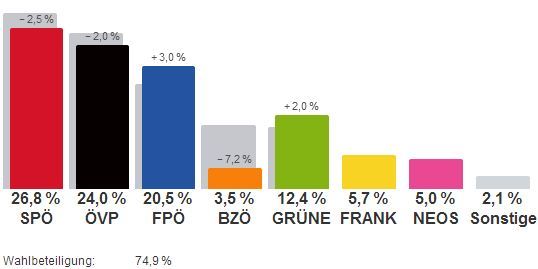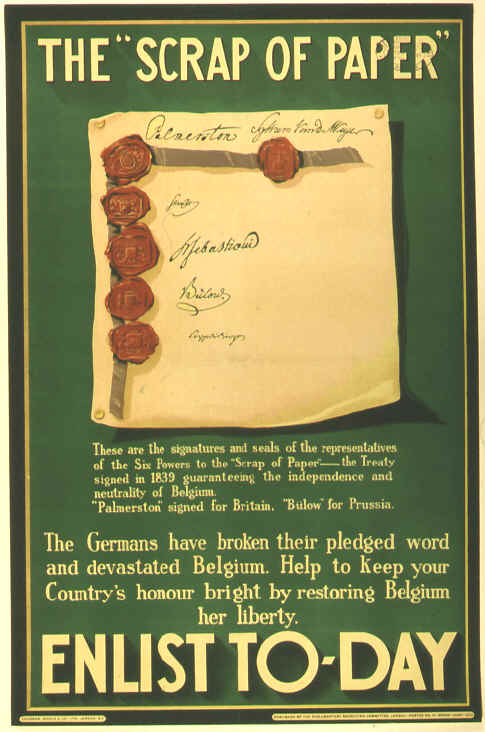It’s been quite some time since Austria’s general elections. In fact, it’s been so long that we’re almost decided on a new government.
You see, when I last talked about Austrian politics, we weren’t sure who would win. Now we know: The moderate left party (SPÖ) won, the ÖVP came second.

Since then, I’ve had headaches every day.
First of all, the right wing party gained 3%, putting them in third place. It was really close, they already had 22.5% and only the mail votes (basically you vote by mail, preferred by Greens and ÖVP) put them down. In a surprising turn of events, the public realized that the NEOS are a viable alternative and that FRANK is full of shit.
Be that as it may, the two largest parties gained a majority vote, so they can form a coalition without any problems. Well, if they’d agree on anything, that is. Sadly, they’ve been bickering since the elections took place (late September) and haven’t really made up their mind on anything.
That is, until now. Just yesterday (12.12.2013) it was announced that all talks had succeeded and that a new government would be formed. I’ll come back to that in just a second, but I need to deal with something first.
This SPÖVP coalition (SPÖ + ÖVP, but we simply can’t think of them as separate. They’re like an old, married couple) tried to get one particular law through since 2001: A new public service law (I think that’s what they’re called?) for teachers. It’s all about how much money we’d make and how much we’d work, that sort of thing.
Now you might think that’s an easy thing to do. But then you read “trying since 2001” and you realize: Something’s not right.
Congratulations, you’ve just taken your first step to understanding Austrian politics: If something can easily be done, Austrian politicians will choose the hard and completely crazy way.
In this case, the Teacher’s Union rebelled against the law, complaining that we’d get more work for less pay. You know, work 50 hours instead of 40, yet lose about 200k€ over a lifespan. I’m not joking, those are the official figures.
So yeah, no service law change in the last 12 years. Now this new government absolutely has to pass this law, a law I’ve been rebelling against for the past few months, if they’re to be taken seriously. (Well, nobody takes them seriously any more, if there were to be a new vote, they’d lose by a landslide.)
Now in the past few months, I’ve been politically active (the first time in my life) in trying to stop this new law dead in its tracks and instead get an expert commission on the case. I’ve invested a lot of time and energy into this and the final vote passes on Tuesday (17.12.2013), so I’m extra busy in organizing a demonstration (protest) and generally getting the info out there.
At our last protest, we were able to gather about 450 of us, on Monday we’re expecting a bit over 1.000 with about 20.000 protesting in all of Austria. We weren’t able in mobilizing the masses of Teachers because our Union did not approve.
In any case, that’s what I’m currently involved with.
Now, I said that I’d talk about this formation of government thing. Basically, they’re supposed to cut spending, increase revenues, the usual. One way to cut spending inside the government was to get rid of ministries. The two parties decided on two ministries.
If, by now, you know anything about Austria, you’ll know that they didn’t uphold the deal. All ministries will remain. Well, that’s not exactly true: They will change, but they will still be there. For example, a new ministry for “Youth and Family” will be created, but to keep the balance, another one has to be integrated into an existing ministry.
It makes absolute sense to merge the ministry for education (BM:UKK) with the ministry for science (BM:WF) (in charge of Universities). The BM:WF creates teachers training and generally handles tertiary education, the BM:UKK deals with pre-tertiary education. The two fit perfectly.
If you vote “answer two, they did not do that” then you receive 100 internets. Of course, the simple, logical solution did not sit well with Austrian politicians, so they decided to merge the BM:WF with a different ministry and they kicked out the minister (currently the most liked minister we have) as they did so.
Now here’s the question: Which ministry would they merge the BM:WF with? Possibly the ministry for transport, innovation and technology (BM:VIT). Then again, that would be too obvious. It could be merged with the ministry for health (BM:G), responsible for hospitals and doctors training. No, still too obvious. It could be merged with the ministry for agriculture, forests, ecology and water management (BM:LFUW), but even that is too logical still.
Instead, it will be merged with the ministry for economy, formerly (formerly as of yesterday) the ministry for economy, family and youth (BM:WFJ). (Remember that the latter two are being split off to form their own ministry… Why? No idea. Because, change.)
This obviously makes no sense, if only because it will lead to further marginalization of universities and will probably lead to increased economic incentives to join a university.
So there you have it, folks: My current life laid out in front of you, with all the political ups and downs we’re currently experiencing in Austria. With any luck, we’ll successfully thwart the new law, but we’re most assuredly entering a period of troubles in Austria.
Or is this really just a ploy by the government? They want us to think we’re going down the drain so they can then jump out as our saviours. I wouldn’t put it past them, but I doubt they’re intelligent enough to pull off such a scheme.


